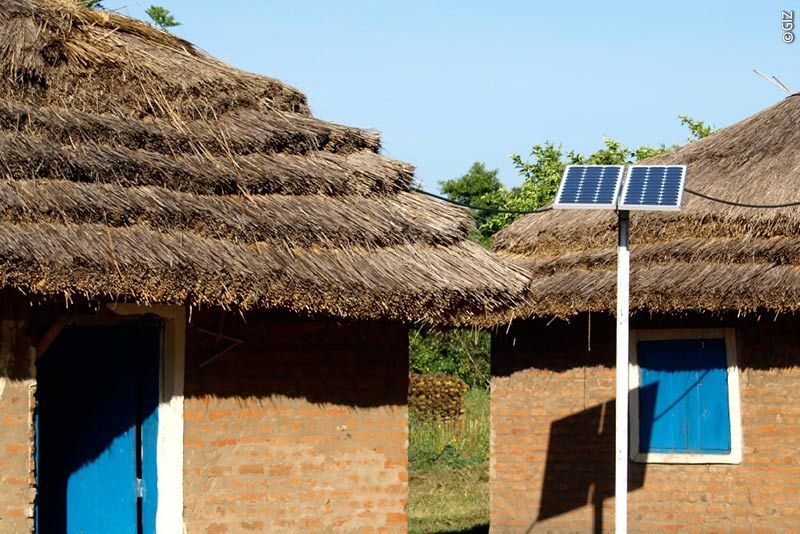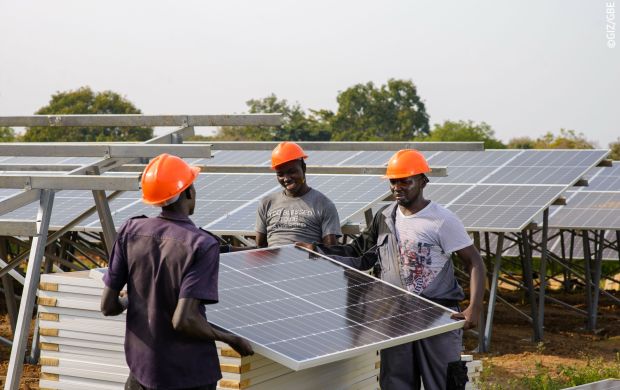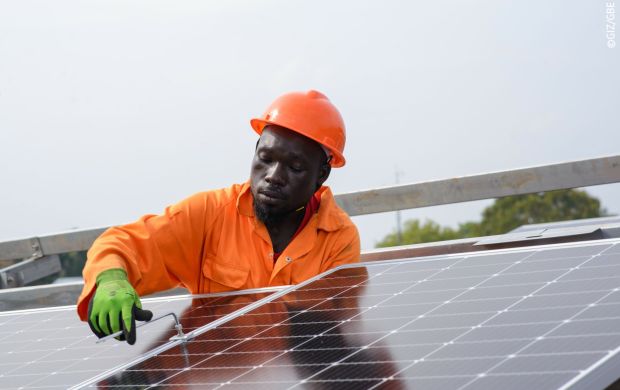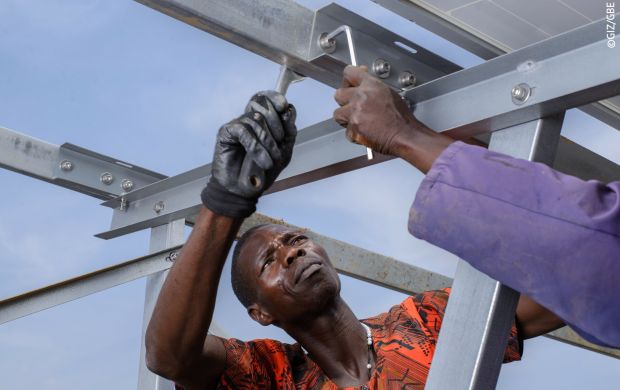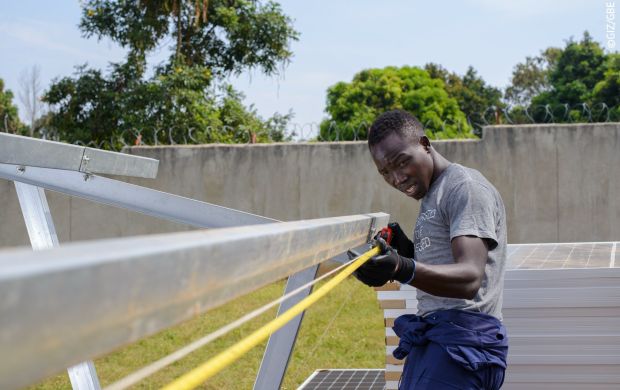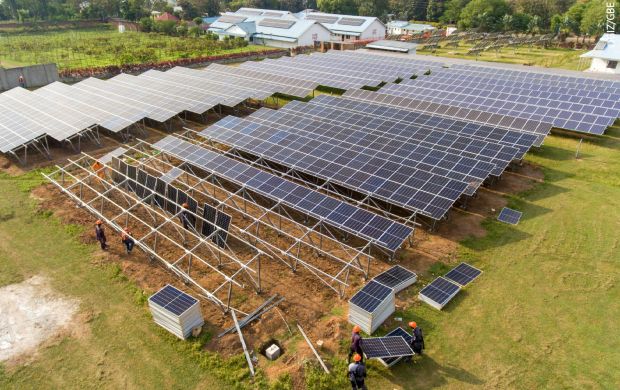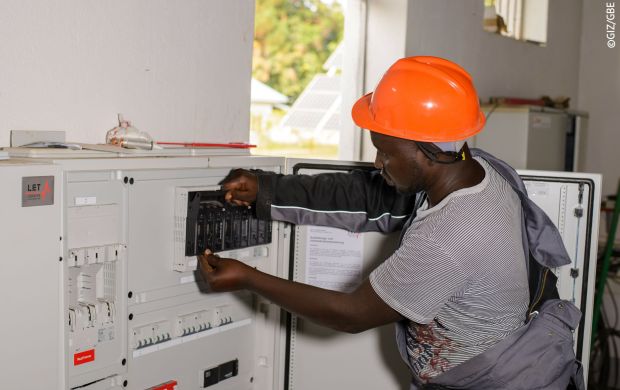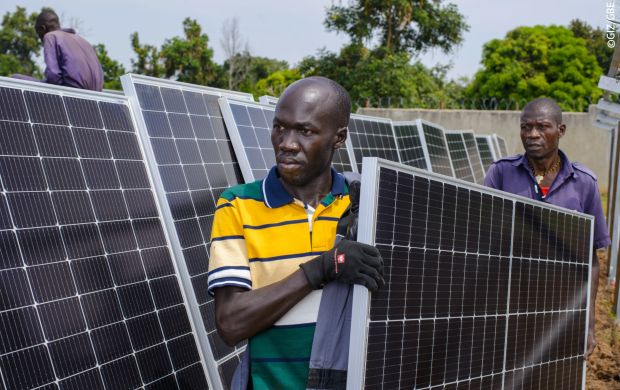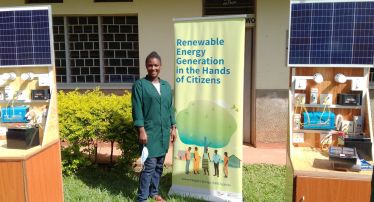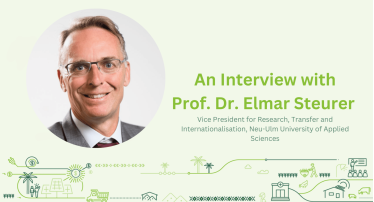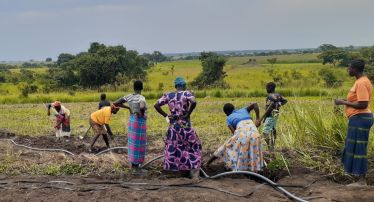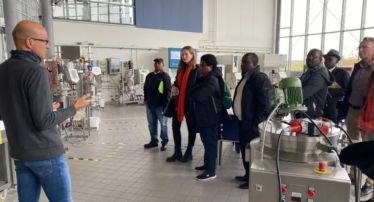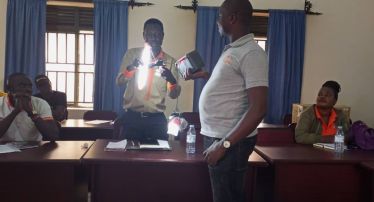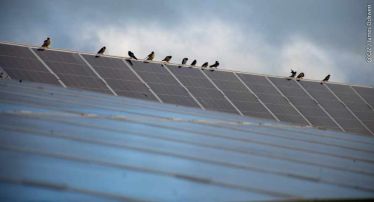Green People’s Energy for Africa – Uganda
Green People’s Energy aims to improve the conditions for decentralised energy supply in rural areas in selected African countries, through the involvement of citizens and companies. To this end, we are working primarily in nine countries in sub-Saharan Africa, including Uganda. In addition to our country-based measures, we support cross-national charitable projects and strengthen partnerships between players in Europe and Africa.
In Uganda, Green People’s Energy will, among other things, introduce practice-oriented curricula with a focus on renewable energies at three training centres; train 25 teachers and 150 renewable energy specialists; support 80 businesses to use decentralised renewable energies; and convince 100 social institutions to purchase decentralised renewable energy systems with our support.
Did you know that…?
… around 29.2 million people, which is more than 72% of the population in Uganda, have no access to electricity?
… more than 45% of the population live more than two kilometres from the next road?
… over 80% of the population lives in rural areas?
… off-grid systems such as island grids, solar lanterns or solar home systems are the most cost-efficient access solution for over 30% of the population?
How we work
To achieve results faster, we rely on the successful approaches and implementation structures of existing projects. In Uganda, the country project of Green People’s Energy implements its activities in close cooperation with the country measure of the Energising Development (EnDev) global programme in particular, as well as other bilateral projects in the energy sector. The advantage of this approach is that we can draw on the many years of experience of these projects’ teams and thus implement our approaches quickly.
To ensure that these approaches are effective in Uganda, we have adapted them to local conditions following an analysis of the country. One aim of this analysis was also to design the project activities of Green People’s Energy for Africa in such a way that the offers are gender sensitive.
Practical Experience
In Uganda, more than 17,500 primary schools operate. But many are located off the main power grid. Consequently, few primary schools have been electrified.
In November 2019, Green People’s Energy Uganda signed a contract with SoloGrid as an outcome of a tender process to increase electricity access for primary schools. SoloGrid distributes high quality Solar Home Systems (SHS), which are almost maintenance free and have a long life span due to the use of modern lithium-ion battery packs. The SoloGrid SHS can be used for lighting of class rooms, charging of mobile phones and operating energy-efficient ICT (information and communication technologies).
As part of an advertising campaign, the company is targeting schools, and advising and training school staff and representatives of the parent-teacher associations on Solar Home Systems (SHS). The aim is to convince them of the benefits of SHS.
To enable potential users that they can afford these systems, SoloGrid offers various financing options. Schools can pay for the slightly subsidized SHS in instalments through partner banks, which are supplied with low-interest loans from the capitalisation company of the Ugandan Ministry of Energy. Alternatively, schools can use a Pay-As-You-Go model.
So far, SoloGrid has educated more than 100 head teachers as well as local government staff about the advantages of modern Solar Home Systems for primary education through training workshops and the setup of a demonstration installation at a primary school in Gulu (Northern Uganda). Until the end of 2020, the company intends to equip 100 primary schools in Northern Uganda with Solar Home Systems.
